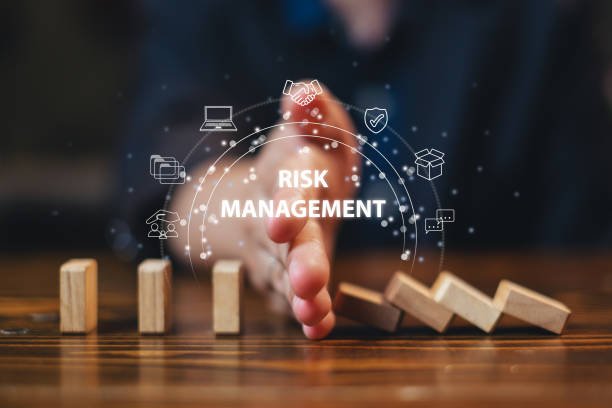Risk management trends refer to current and emerging practices, strategies, and technologies organisations use to identify, assess, and mitigate risks. These trends are constantly evolving to keep up with the changing risk landscape and the needs of businesses.
In today’s dynamic corporate environment, where risks constantly evolve, staying updated with the latest risk management trends is essential. This blog will discuss the top risk management trends businesses should anticipate and mitigate in 2023.
-
Integration of AI and ML
Artificial intelligence (AI) and machine learning (ML) will become more significant in risk management in 2023, with hackers having begun weaponising AI and machine learning to uncover weaknesses. More organisations are likely to employ AI defensively and proactively to decrease risks.
Companies use AI/ML to improve existing processes and predict business performance or industry trends. AI and machine learning will move beyond detection to prediction, helping organisations stay ahead of the competition.
-
Increased focus on cybersecurity
Cybercrime is growing exponentially, with its cost predicted to hit $8 trillion in 2023. The rise of artificial intelligence, cloud computing, and the Internet of Things (IoT) has created new attack surfaces, making organisations more vulnerable to cyber threats.
MDR (managed detection and response) services provide organisations with 24×7 monitoring and response to cyber threats, allowing them to detect and respond to security incidents quickly.
-
Financial risk management
The COVID-19 pandemic, climate change, geopolitical risks, and supply chain disruptions have added new dimensions to financial risk for organisations.
Companies will face more credit and liquidity risk in 2023. Banks are more cautious heading into 2023, as market conditions are rife with economic volatility and defaults. Interest rates will remain a market focus, increasing the value of integrated balance sheet management. Asset liability management will take centre stage as credit, liquidity, and other risks soar.
-
Supply chain risk management
Companies increasingly focus on enhancing supply chain resilience to manage risks and disruptions effectively. The need to combine efficiency and affordability with resilience and sustainability is driving this trend.
As the world’s situation remains unpredictable, businesses are searching for ways to manage risks. Organisations across sectors are also required to prioritise software supply chain risk management. Automation and risk management are also essential aspects of supply chain planning.
-
Data privacy risk management
With an increased focus on keeping user data safe and rapidly changing regulations across the globe, it is more important than ever to be aware of how businesses interact with customer data. Organisations must comprehend relevant data privacy laws and implement best practices to manage data privacy risks.
-
ESG risk management
Companies are connecting enterprise risk management with ESG (environmental, social, and governance) agendas. There is a rise in scenario planning and assumption testing capabilities. Recognising ESG risk as a business risk, companies are taking measurable steps to mitigate these risks.
-
Risk appetite statements
Risk appetite statements are gaining popularity in various industries to replace rudimentary “check the box” exercises with a process that more definitely guides day-to-day risk management decisions. The financial services sector developed risk appetite statements to enhance dialogue with staff, shareholders, and authorities.
-
Risk management software
Risk management software can promote accountability for actions taken to mitigate risk and provide real-time risk reporting to aid management decisions.
The digital transformation of businesses and global supply chain trends have created a new dimension of risk for organisations. As a result, risk management professionals will need to account for new risks emerging at an unprecedented pace in 2023. Risk management software can help organisations collect and organise risk data, analyse complex risk scenarios, and monitor risk levels in real time.
-
Integrated risk management (IRM)
Successful risk management in 2023 requires organisations to provide an integrated strategy, process, information, and technology. IRM is a strategic approach to business and operational risk and resilience. It involves engaging all levels of the organisation, from the front line up through operational management to executives and the board.
The global integrated risk management software market is anticipated to rise considerably during the forecast period between 2022 and 2031.
-
Risk analytics
Risk analytics involves using data and statistical methods to identify, assess, and manage risks. One of the key drivers of risk analytics is the increasing complexity and interconnectedness of risks.
Organisations face multiple, complex disruptions with varying causes and outcomes, such as climate change, the COVID-19 pandemic, and record inflation. Notably, organisations need to understand their risk landscape through effective risk analytics to manage them better.
By adopting these trends, businesses can significantly improve their overall risk posture and prepare for future challenges.
Conclusion
Imarticus Learning offers a Certified Management Accountant course to students appearing for the CMA exam, providing practical insights into management accounting. The CMA course is globally recognised and is the highest credential in management accounting administered by the Institute for Management Accountants (IMA), U.S.
The CMA USA course begins with the fundamentals of accounting and then moves on to the core CMA curriculum. Topics covered include risk and cost management, financial modelling, decision analysis and advanced Excel.

